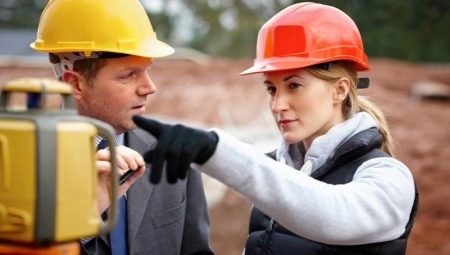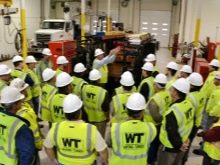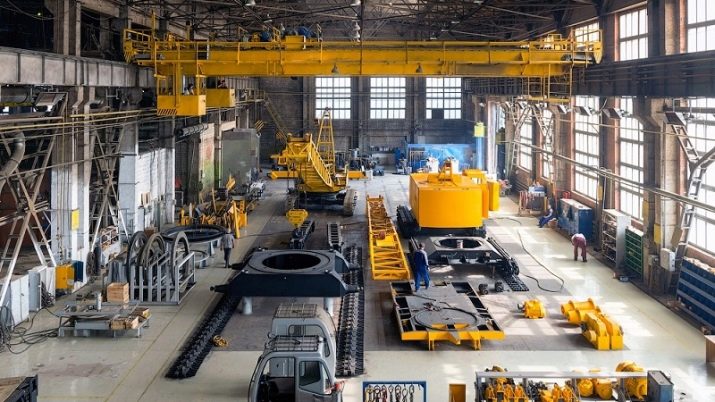All about the profession of an occupational safety engineer

An occupational safety engineer is an extremely important and responsible profession that is in high demand in the modern market. The safety of the organization's employees, and sometimes the safety of their lives, depends on the professional qualities of such a specialist.

Features of the profession
An occupational safety engineer is a responsible person who monitors the strict observance of safety measures at workresponsible for fire safety and monitoring the working conditions of all employees of the organization, in particular people employed in working with complex mechanisms, and workers in hazardous industries. In this regard, the position of an occupational safety engineer is especially in demand at enterprises of the light, heavy and food industries, agriculture, as well as at nuclear and thermal power plants, the railway and other facilities equipped with complex mechanisms and special equipment.
In accordance with article 217 of the Labor Code of the Russian Federation, the position of an occupational safety engineer is introduced in organizations where the number of employees exceeds 50 people. If the number of employees in the organization is less, then the authority of the labor protection specialist is often transferred to the employer. The advantages of the profession include its high demand in the modern labor market and good wages. Among the minuses, they note some bias of the management team towards the activities of labor protection specialists, which, in their subjective opinion, interferes with production activities and reduces productivity.
More often, overly responsible engineers fall out of favor with the bosses, who approach safety issues not formally, but in strict accordance with norms and standards. Therefore, applicants for this position need to be ready for constant confrontation and defending their professional interests and responsibilities.
Another disadvantage of the specialty is frequent business trips, especially in organizations with an extensive network of branches.

Responsibilities of a specialist
The main functional responsibilities and tasks of an occupational safety engineer are spelled out in the job description, which lists the main requirements for a specialist and defines the area of activity under his control, which entirely depends on the profile of the enterprise. Below are the main tasks to be solved by the engineer, as well as a list of his powers and rights.
- Notification of new employees about the peculiarities of the production process and working conditions, as well as explanations about the risks associated with work, and the compensation due in the event of force majeure.
- Regular safety lectures and briefings, as well as explaining to employees the need to comply with these rules in the production process is one of the main functions of a specialist.
- Daily personal control over the use of overalls and personal protective equipment, as well as tracking the status of these funds and their timely maintenance and replacement.
- Continuous monitoring of working conditions at the enterprise and timely introduction of adjustments and proposals to improve the safety of the production process.
- Making prescriptions upon detection of violations of the organization of working conditions and control over their elimination. Any deviation from the standard should be clearly recorded and controlled by a specialist until the situation normalizes.
- Regular certification workplaces with drawing up the necessary conclusions and making comments and recommendations.
- Control over the passage of employees of the enterprise annual medical examinations and timely response to the recommendations of doctors regarding the transfer of an employee to "light work".
- Development of measures for improving process safety and elimination of the risks of injury at work.
- Constant monitoring of the condition of ventilation communications and fire systems, as well as the operability of voice warning systems and the functioning of emergency exits.
- Drawing up, maintaining and submitting the necessary reports, as well as attendance at seminars and refresher courses.
- Providing the necessary documentation to law enforcement agencies in case of accidents at the enterprise and participation in determining the amount of compensation payments to victims. In addition, the specialist is obliged to act as a representative of the enterprise when considering labor disputes and lawsuits related to industrial injuries and injuries.
- Moreover, the professional standard of a labor protection specialist according to ECTS provides for the presence of deep knowledge in the field of law and legislation in terms of labor protection, as well as a good knowledge of the current norms and tracking the amendments to the Labor Code of the Russian Federation.
In addition to a large number of responsibilities, an OSH engineer also has rights. Thus, a specialist has the right, without prior agreement, to visit the workplaces of employees and production workshops of the enterprise, to identify possible violations of working conditions there.
In addition, the specialist has the right to request from the management any documentation related to the organization of the work process, as well as documents for equipment. If errors are found in the documentation, the specialist makes a verbal remark to the management and controls the correction of inaccuracies.If, in the course of the inspection, violations of safety rules were identified, leading to an increase in the risk of injury, an engineer has every right to remove a negligent employee from work, notifying his superiors.
And vice versa - if an employee diligently observes safety measures and shows discipline in matters of labor protection, the engineer has the right to nominate him for the award.



Education and qualifications
An applicant for the position of an occupational safety engineer must have a specialized vocational education in the specialty "Technosphere safety" or undergo a retraining course in this area, having another technical specialty. You can study this profession in technical educational institutions, and education can be not only higher, but also secondary professional.
As for the qualifications of a specialist, a category I occupational safety engineer must have a higher education in this specialty and have worked as a category II engineer for at least 3 years. At the same time, an engineer of the II category must also have a higher education and work in any engineering and technical positions for at least 3 years. Graduates of universities and colleges, after graduation, are employed as engineers without a category or as labor safety technicians without seniority requirements.
Knowledge and skills
To become a professional in their field, an applicant for the position of an occupational safety engineer must have some knowledge and skills. In this profession, you cannot do without organizational skills, a technical mindset and the ability to achieve your goals. In addition, the engineer is obliged to know the current Labor Code of the Russian Federation and legislative acts related to labor safety at work, as well as the norms of organizing the work of women and minors.
The specialist must be well versed in the peculiarities of the operation of the equipment used in production, know its characteristics, be able to carry out its certification and issue the appropriate certificates.

A responsibility
One of the most important features of the profession is the moral and material risks to which a specialist is exposed in case of emergencies that may arise at work. In this case, the person responsible for occupational safety and health and keeping all the necessary documentation may be brought to disciplinary, administrative, and in more severe cases, to criminal liability.
In addition, in the event of material damage, the engineer may be held liable. In this regard, a person who is professionally engaged in labor protection should take all possible measures to prevent such situations, since the punishment for an emergency at work can result in a fine for him from 200 thousand rubles to 5 years in prison.
Employment
Upon graduation from the university, an occupational safety engineer can work in almost any enterprise with more than 50 employees. It can be any branch of agriculture, transport, mining, processing and mechanical engineering enterprises. If the staff of the organization is small, then employers often use the services of outsourcing firms and hire a specialist from outside.
As for industrial giants with a large number of serious production facilities, companies often hire several specialists at once, since the costs of their salaries cost the organization's budget much cheaper than constant litigation in the event of a high accident rate at the enterprise.









